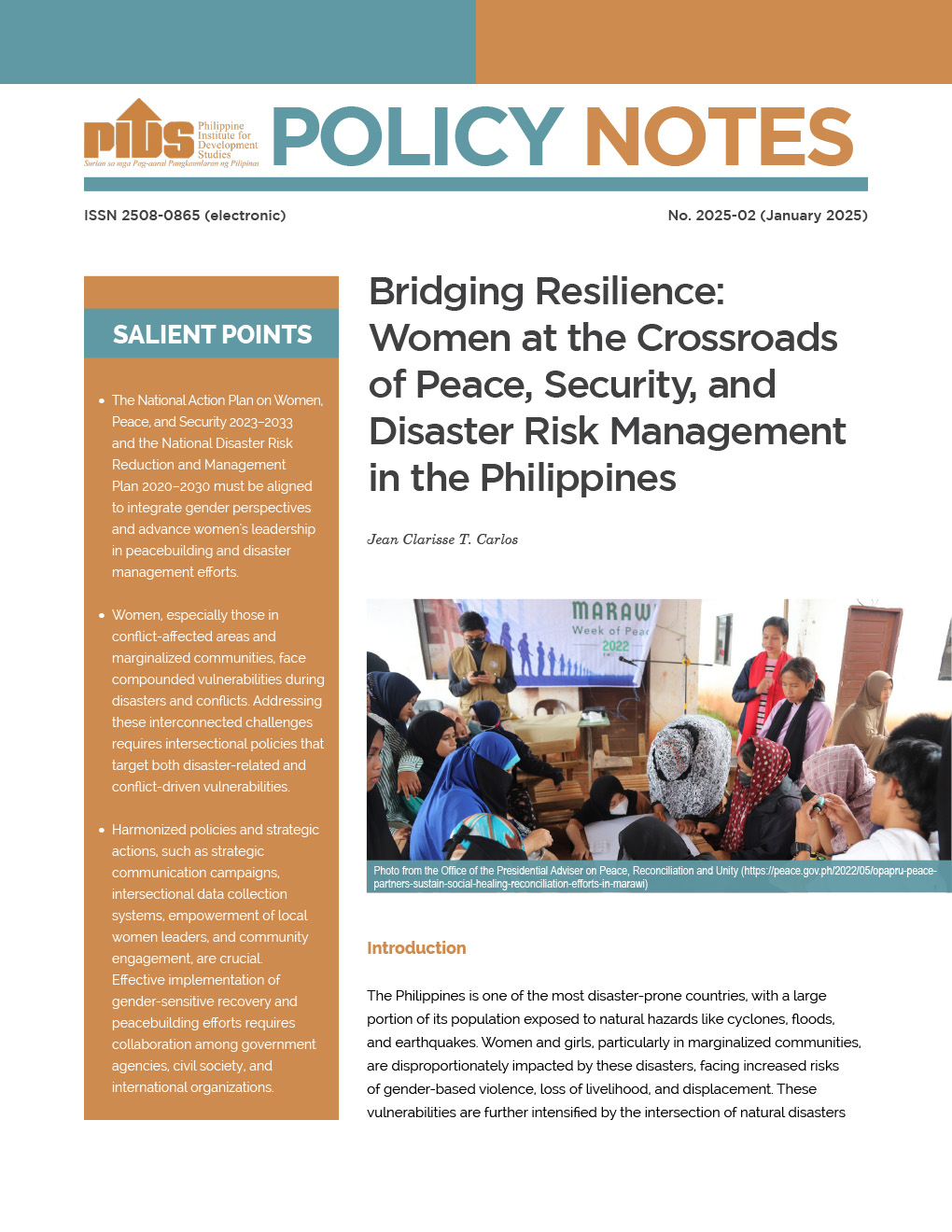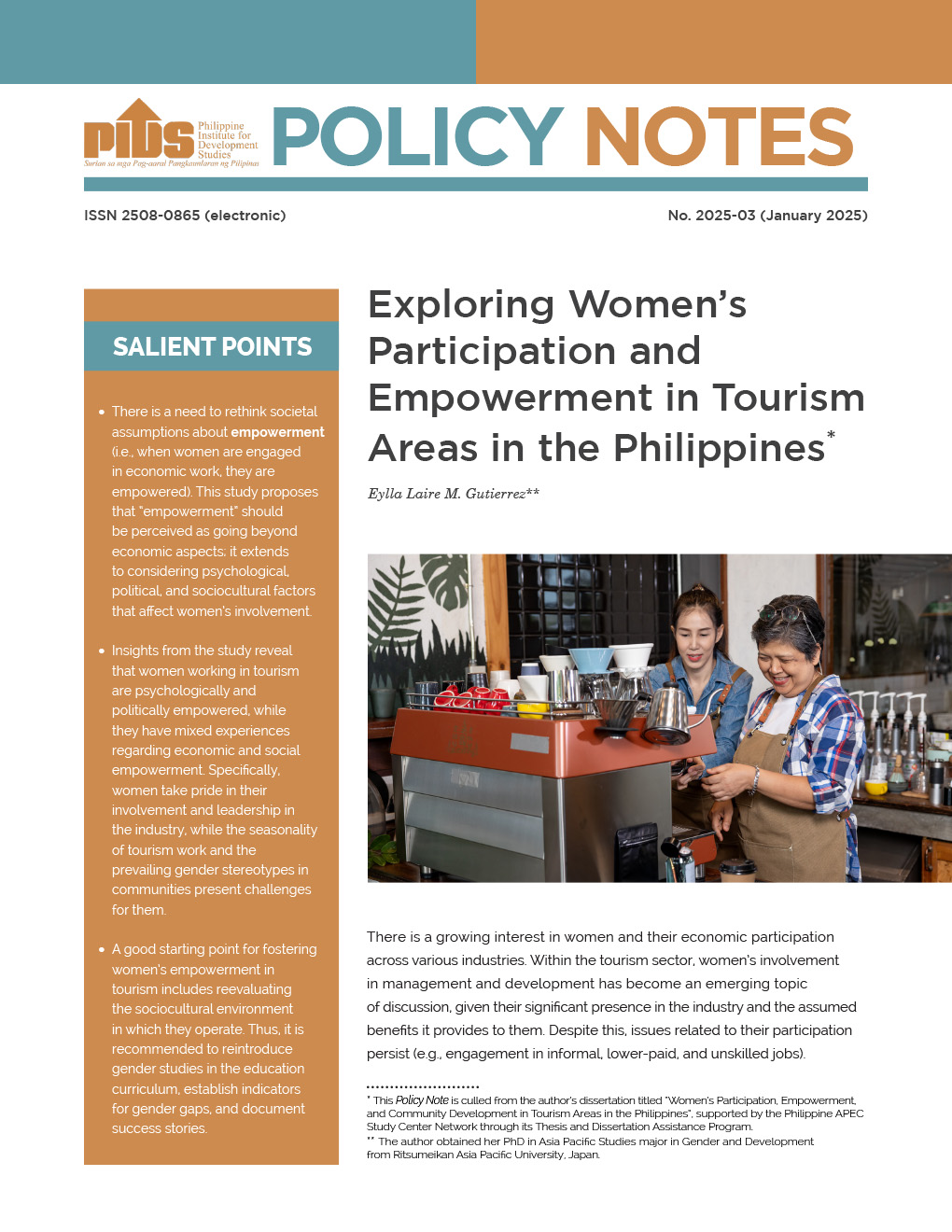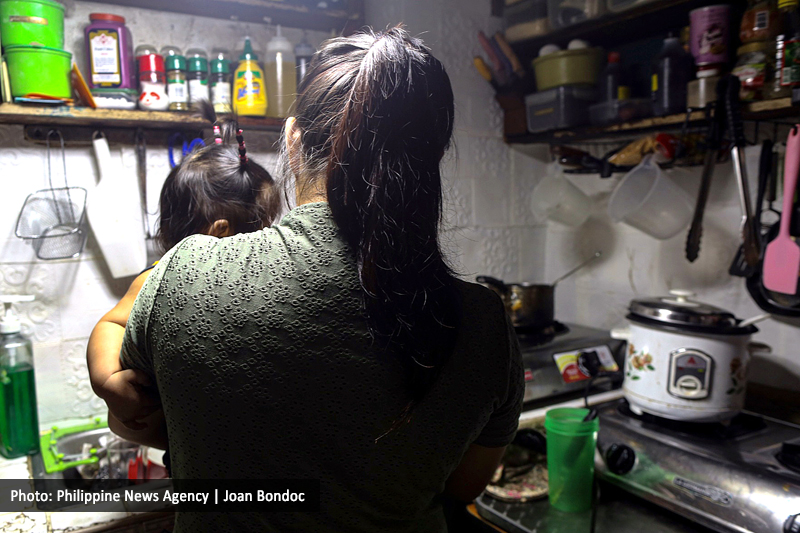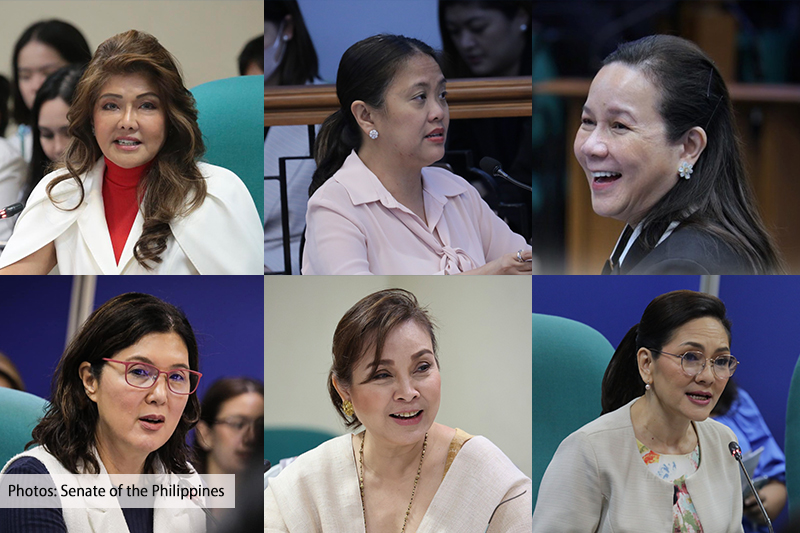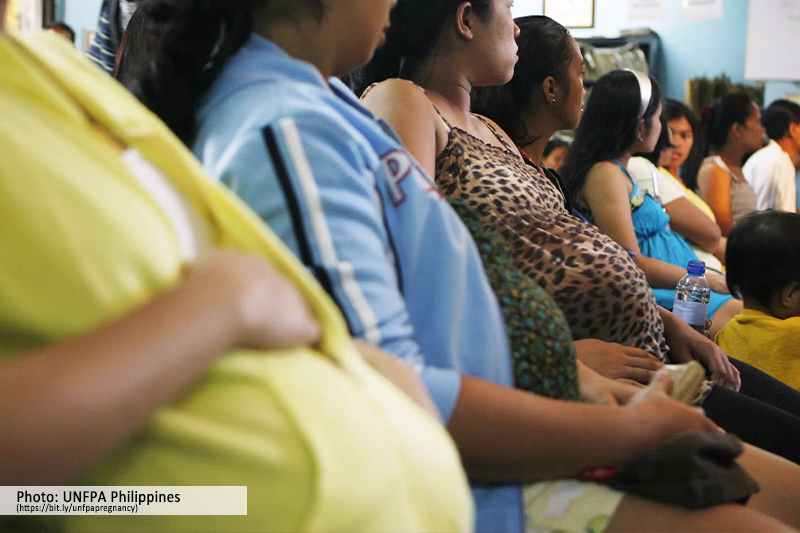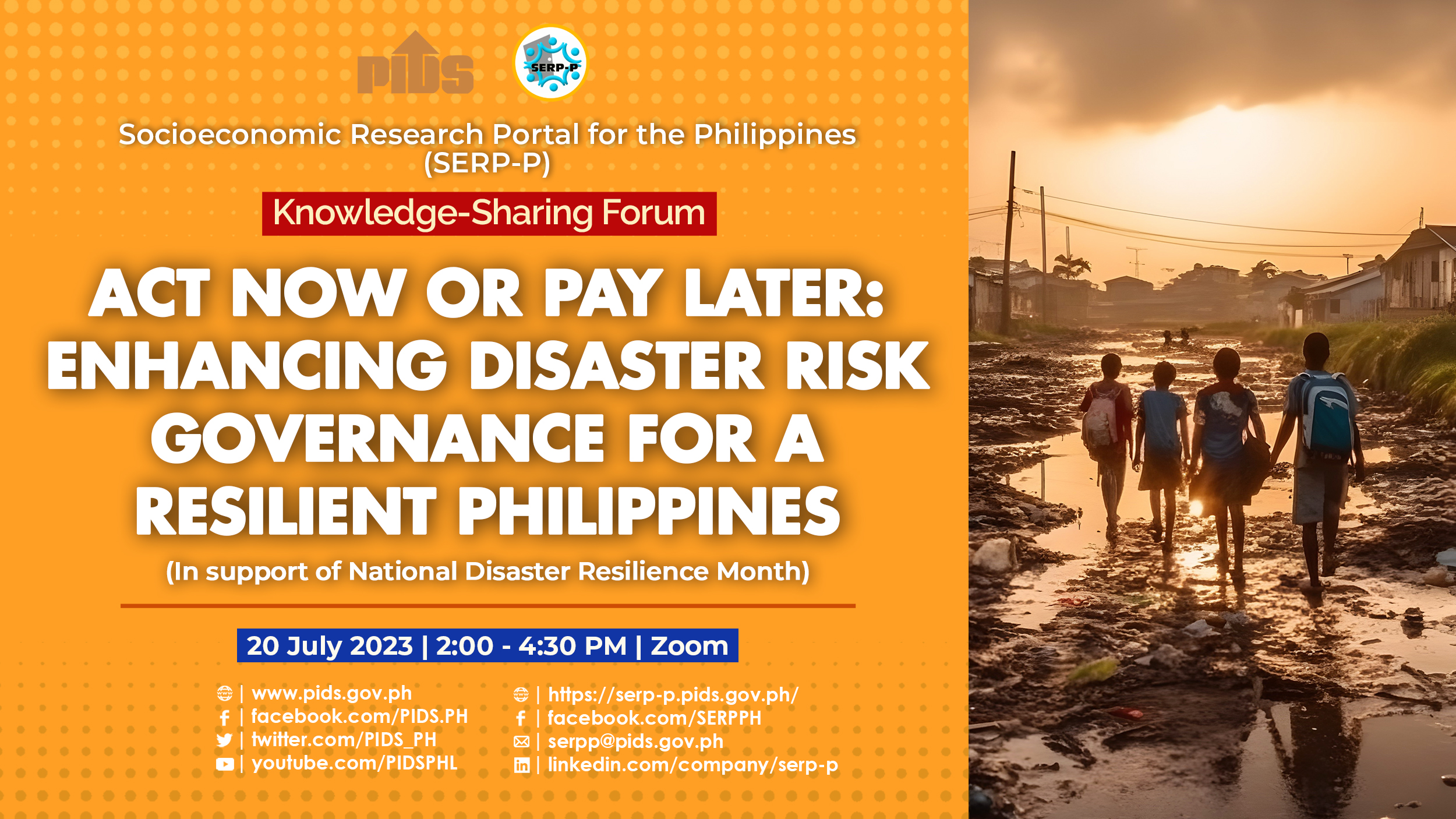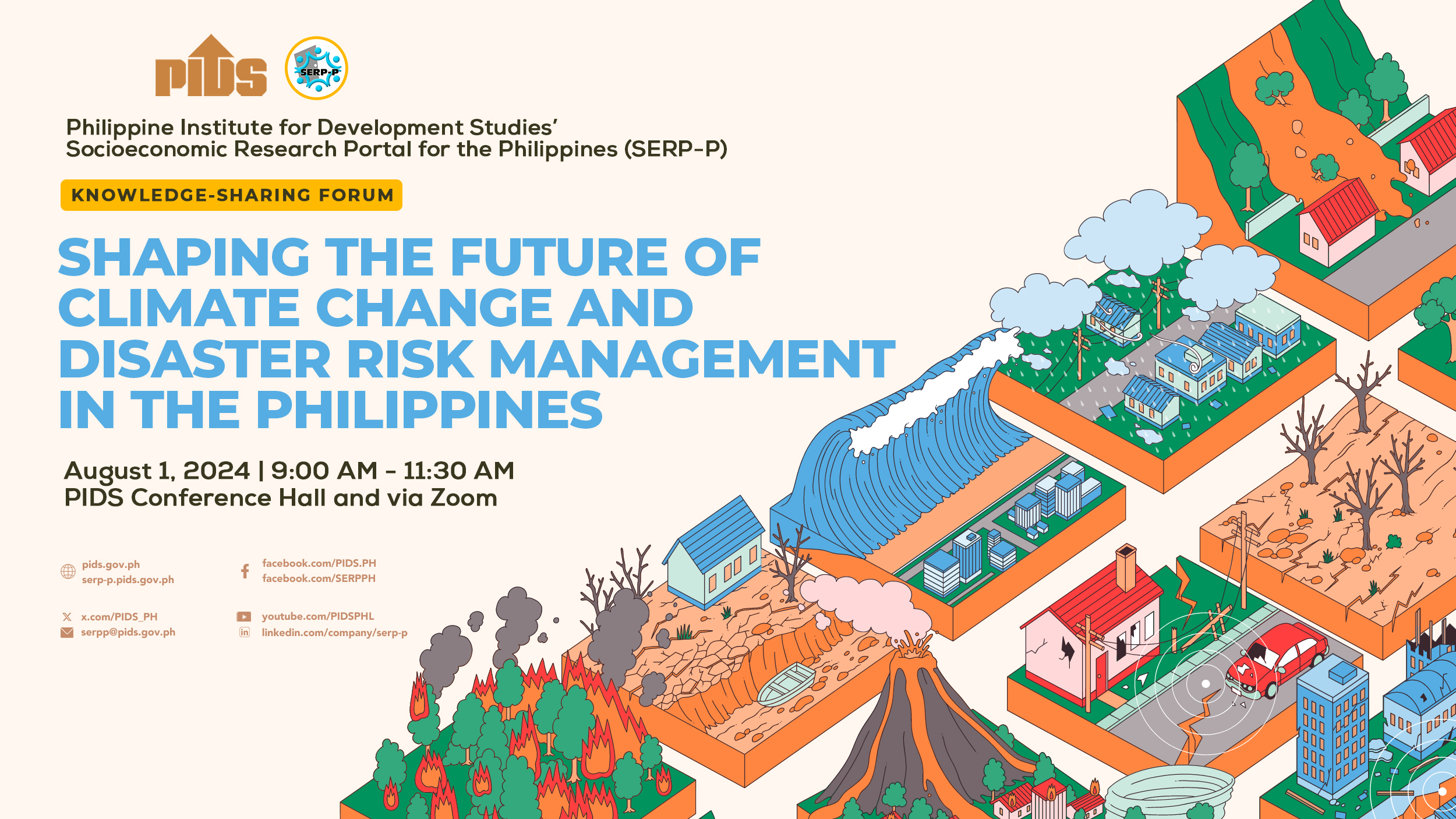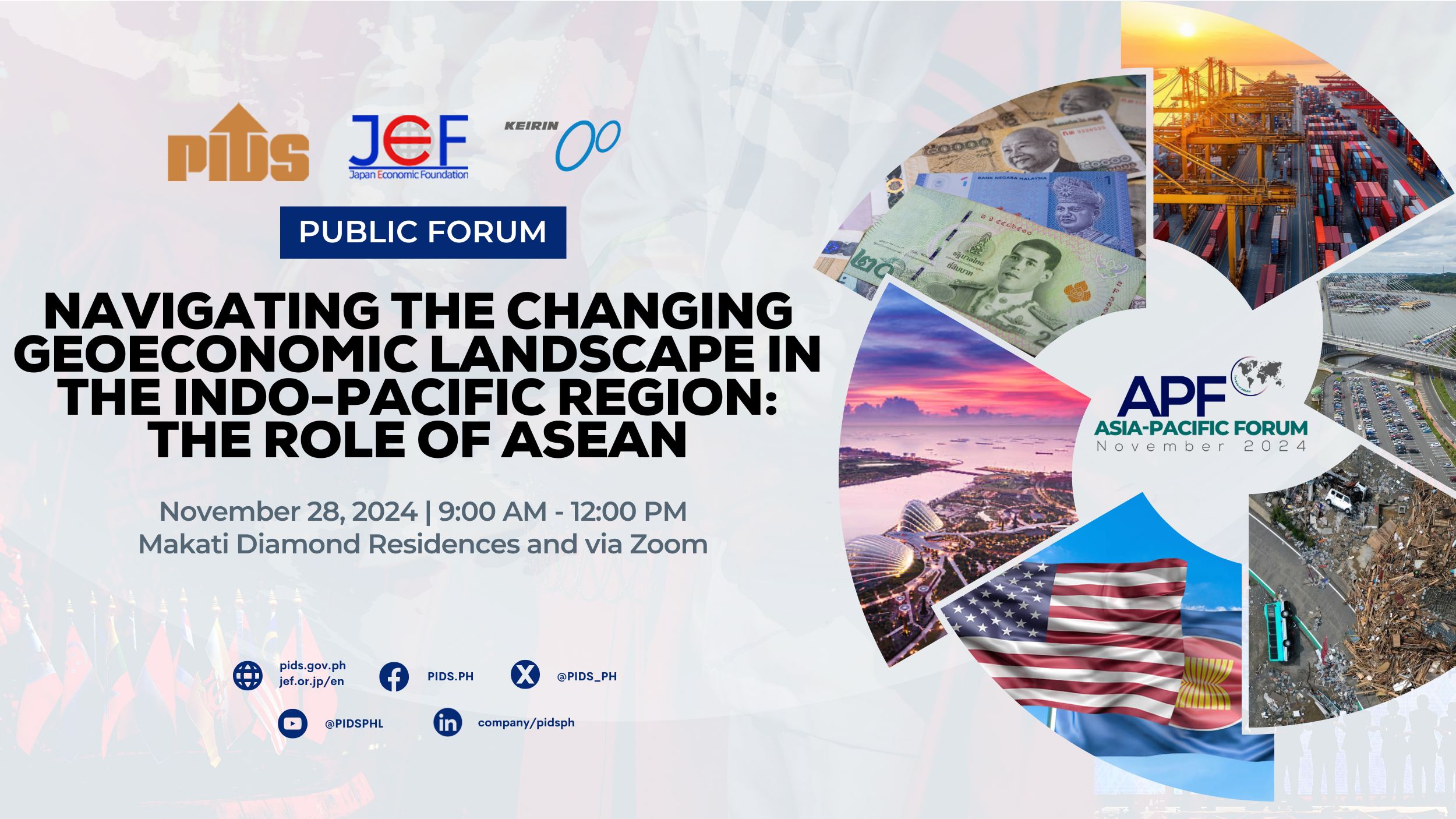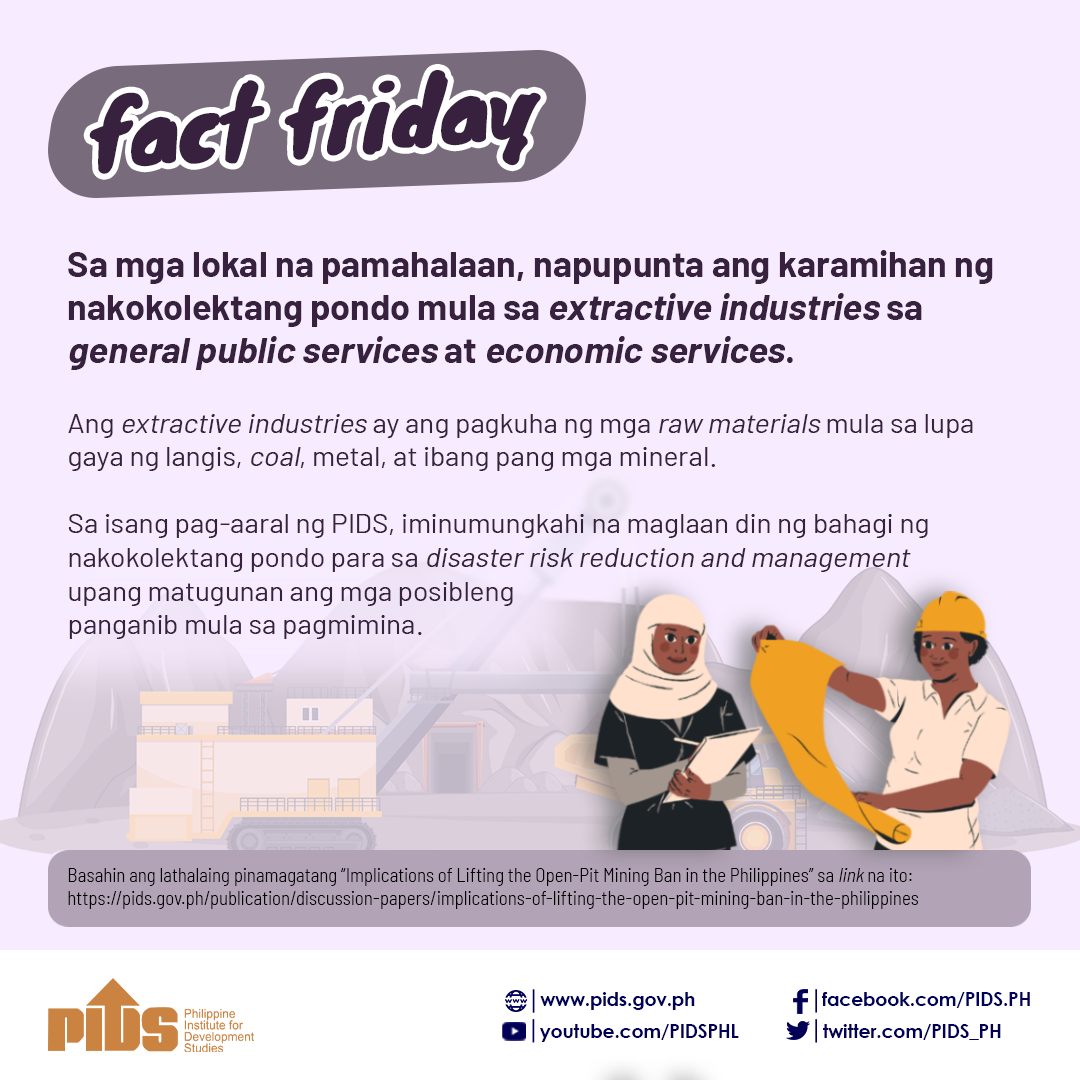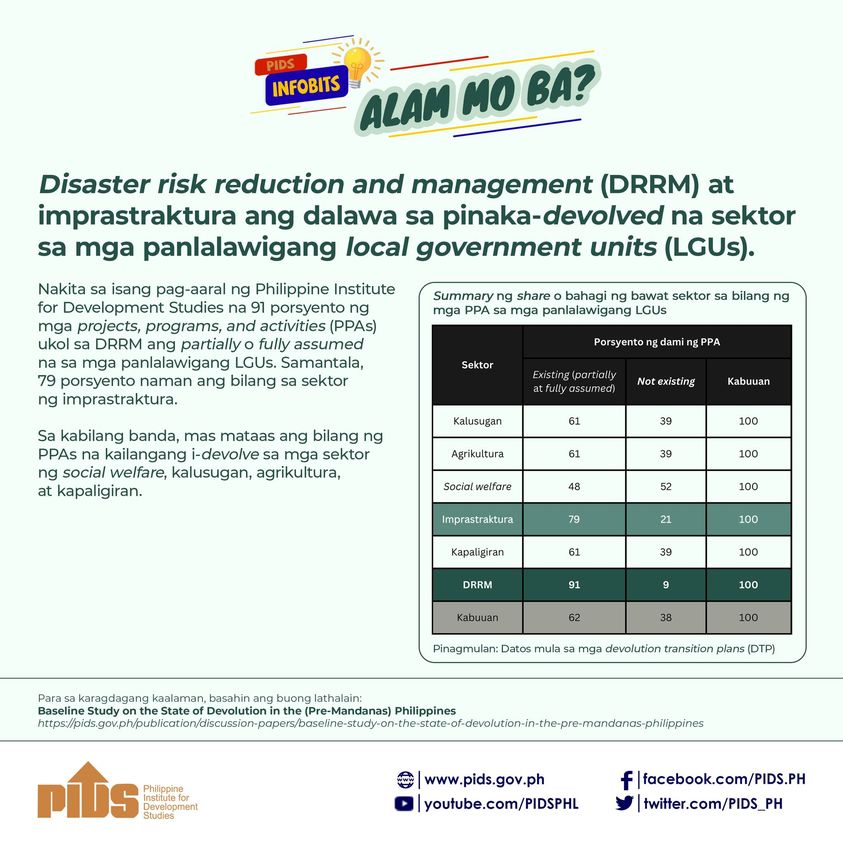WOMEN are not just victims of climate change and manmade induced disasters but are integral to finding sustainable solutions to responding to them, according to the government’s think tank.
In a Policy Note, Philippine Institute for Development Studies (PIDS) Project Development Officer Jean Clarisse T. Carlos said women are among the most vulnerable during disasters.
Typhoon Haiyan affected 5.2 million women while women in conflict areas are among the most affected as they form a significant share of the 3.6 million people who were displaced in 2018.
“Women, especially those in marginalized and conflict- affected areas, must be recognized not only as victims but also as key agents in driving sustainable solutions,” Carlos said.
“Empowering women and ensuring their voices are central to policy creation and implementation will lead to more resilient communities and equitable outcomes,” she added.
The study recommended strategic communication, data collection, and the empowerment of local women researchers.
The recommendations also included policy harmonization, the use of intersectional analysis, and community engagement.
“The combined efforts of governments, civil society, and local women’s groups can foster a gender- sensitive framework that strengthens disaster risk reduction, peacebuilding, and recovery processes, ultimately creating a more equitable and sustainable future for all,” Carlos said.
In terms of communication, the study recommended the implementation of a nationwide communication strategy; provide crisis communication training for local leaders; and the integration of gender- sensitive messaging.
To enhance data collection and management, the recommendation was to implement intersectional data collection systems and create a centralized gender database.
To empower local women, the study said, women should be provided with grants and fundings as well as fostering research collaboration and mentorship programs.
Harmonizing policies, the research stated, means launching a multistakeholder task force and conduct policy audits.
The research also stated that in terms of utilizing intersectional- based policy analysis means conducting an analysis to address how overlapping identities shape women’s experience during conflicts and disasters.
The recommendation also include conducting community- based researches, establishing feedback mechanisms, and train local women to become policy advocates.
The research stated that a 2016 Asian Development Bank (ADB) found that women caught in conflict and disasters face income losses of up to 30 percent.
The study also stated that “structural barriers, including limited access to resources and exclusion from decision-making processes in conflict resolution and disaster recovery efforts, further hinder their ability to rebuild and recover.”

